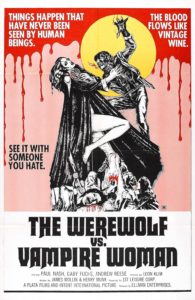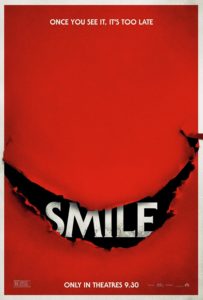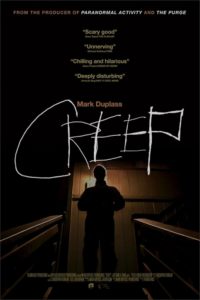 Is it low-hanging fruit to go after a social media influencer type as the victim of a “let’s play a game” horror movie? I mean, nobody likes them[1], it’s easy to play around with the idea that they’re self-involved and deserve whatever they get, and you can either go with a redemption arc or a just desserts arc, with equal facility.
Is it low-hanging fruit to go after a social media influencer type as the victim of a “let’s play a game” horror movie? I mean, nobody likes them[1], it’s easy to play around with the idea that they’re self-involved and deserve whatever they get, and you can either go with a redemption arc or a just desserts arc, with equal facility.
Mia is just such an influencer. And one of her influencer… friends? co-workers? was just murdered by the dog killer that has been stalking town for the last few weeks. So instead of going out to party, she has decided to stay in and watch her sister’s dog while the sister is out of town getting medical tests. Which brings in a whole subplot about how her family has a genetic disease that results in full incapacity followed by death, and it has no treatment, and their mother has already died of this, but the sister was fully in charge of the parental care while Mia went to college to become an influencer[2]. And unless the medical tests go well, Mia will be in charge of sororal care before very much more time goes by. And who knows who might eventually care for Mia?
So there Mia is, watching the dog while her influencer friends nag her about coming to their party, which is just the three of them sitting in a living room broadcasting themselves hanging out. (The friends consist of her bestie, her boyfriend, and her frenemy who is clearly trying to win her boyfriend away.) And then she loses the dog, and a creepy dude friends her on the social media account, and calls her, and apparently lives across the street, and it quickly becomes clear that she is being taunted and stalked, which has her well and truly Shook. And then before you know it her friends and her dog and her sister are all in danger, and she alone can save them. Or at least some of them, since she mostly has to choose one or the other.
And this is the meat of the flick. Can she save any of her friends? Can she save her sister? Can she save herself?
Can she save the dog?
[1] Other than the countless thousands of followers who result in them having influence in the first place, sure. Be all technical, why don’t you?
[2] I have no idea what classes you take for this (other than marketing of course)








